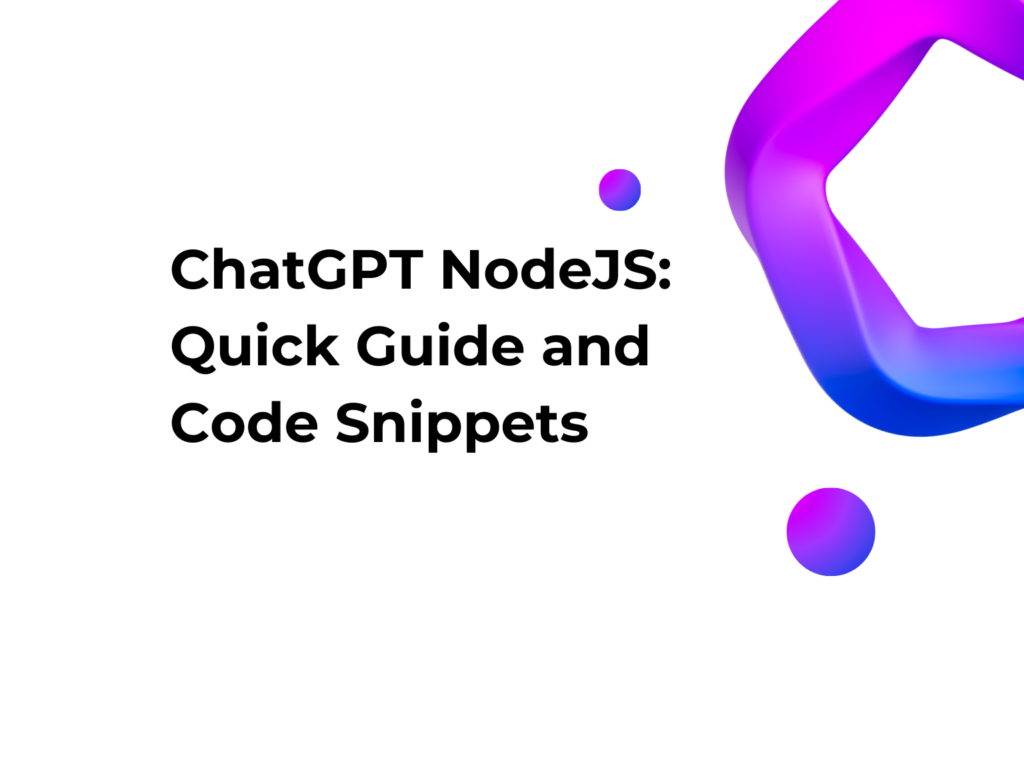AI for Software Development: Tools and Technologies
Introduction
In recent years, artificial intelligence has revolutionized numerous industries, and software development is no exception. AI agents are emerging as powerful tools for automating processes, boosting developer productivity, and even generating code autonomously. When used effectively, AI for software development becomes an ally rather than a replacement, freeing developers from repetitive tasks and allowing them to focus on creative problem-solving. In this article, we will explore the role of AI for software development, showcase practical examples, and review key tools and libraries that are driving innovation in the field. Understanding how to integrate these solutions can give you a competitive edge in the evolving tech landscape.
1. What are AI Agents in Software Development?
AI agents are intelligent systems capable of performing tasks autonomously, interacting with their environment, and learning from experiences. In the context of software development, they can:
- Generate code based on specific textual inputs.
- Automate testing and debugging.
- Optimize performance and suggest refactoring.
- Integrate CI/CD workflows with advanced automation.
2. Practical Use Cases
The adoption of AI agents in software development is rapidly growing. Here are some concrete examples of how they save time and improve developers’ work:
2.1 Automatic Code Generation
Tools like GitHub Copilot, powered by OpenAI Codex, enable AI-assisted code writing. For example:
- If a programmer writes
function getUserData(), Copilot can automatically suggest the function’s body based on the context, reducing writing time by up to 50%. - For common operations such as user authentication or JSON file parsing, Copilot provides ready-to-use code snippets, eliminating the need for online searches.
- This reduces cognitive load and allows developers to focus on the project’s core logic rather than writing repetitive standard code.
2.2 Debugging and Automated Fixes
AI tools like DeepCode and CodeQL analyze code to identify issues and propose solutions:
- DeepCode highlights security vulnerabilities such as SQL injection and buffer overflow, suggesting immediate fixes and saving hours of manual code review.
- CodeQL enables querying code like a database to detect common bug patterns, enhancing security and preventing critical flaws before they become problems.
- A bug that might take hours or days to locate manually can be identified within seconds by these tools.
2.3 Test Automation
Frameworks like Testim and Applitools leverage AI to automate UI and functional testing:
- Testim records user actions on an interface and generates intelligent test scripts that adapt to layout changes, reducing test maintenance time by up to 70%.
- Applitools uses AI to verify visual differences between app versions, identifying graphical bugs without false positives, saving hours of manual review.
2.4 Code Refactoring and Optimization
Libraries like OpenRefactory use AI to analyze code and suggest improvements:
- Detect duplicate code and propose a more efficient restructuring, making the code more readable and maintainable.
- Analyze cyclomatic complexity to suggest more modular and understandable functions, reducing debugging and maintenance time.
3. Available Libraries and Tools
AI agents provide solutions for various aspects of software development. Here are some of the main libraries and tools available:
3.1 Code Generation
- GitHub Copilot: Suggests and autocompletes code in real-time, reducing writing time.
- Tabnine: Learns from the team’s code for more contextual and accurate suggestions.
- OpenAI Codex: A powerful AI engine behind many programming assistance tools.
3.2 Code Analysis and Debugging
- DeepCode: Analyzes code to identify vulnerabilities and design flaws.
- CodeQL: Enables querying code to detect bug patterns.
- SonarQube AI: Integrates static analysis with intelligent recommendations.
3.3 Testing and QA
- Testim: Generates automated UI tests that adapt to changes.
- Applitools: Uses advanced AI for visual testing to prevent regression issues.
- Mabl: AI-driven test automation for web and mobile applications.
3.4 Optimization and Refactoring
- OpenRefactory: Suggests optimizations and code improvements.
- Sourcegraph Cody: AI-powered tool that helps understand large-scale codebases.
- Embold: Analyzes legacy code to identify structural improvement areas.
4. Future Scenarios
AI-driven software development is still in its early stages, but future prospects are exciting. Possible evolutions include:
- Fully automated software development: AI agents capable of creating applications without human intervention.
- AI-driven DevOps: Fully automated and optimized development and deployment pipelines.
- Smoother human-AI collaboration: More advanced tools to assist developers at every stage of the software lifecycle.
However, it is crucial to emphasize that these tools will never replace human developers. Artificial intelligence can automate repetitive and tedious tasks, but creativity, problem-solving skills, and human intuition remain irreplaceable. AI agents are not a threat but an opportunity to make developers’ work more efficient and less stressful.
Conclusion
AI agents are transforming how we develop software, making processes more efficient and reducing errors. While we are still far from full automation, current technologies already provide powerful tools to enhance developer productivity. The future of AI in programming is continuously evolving and represents one of the most promising frontiers of technological innovation. We should not fear artificial intelligence but learn to leverage it to focus on what truly matters: creating innovative and valuable solutions.

